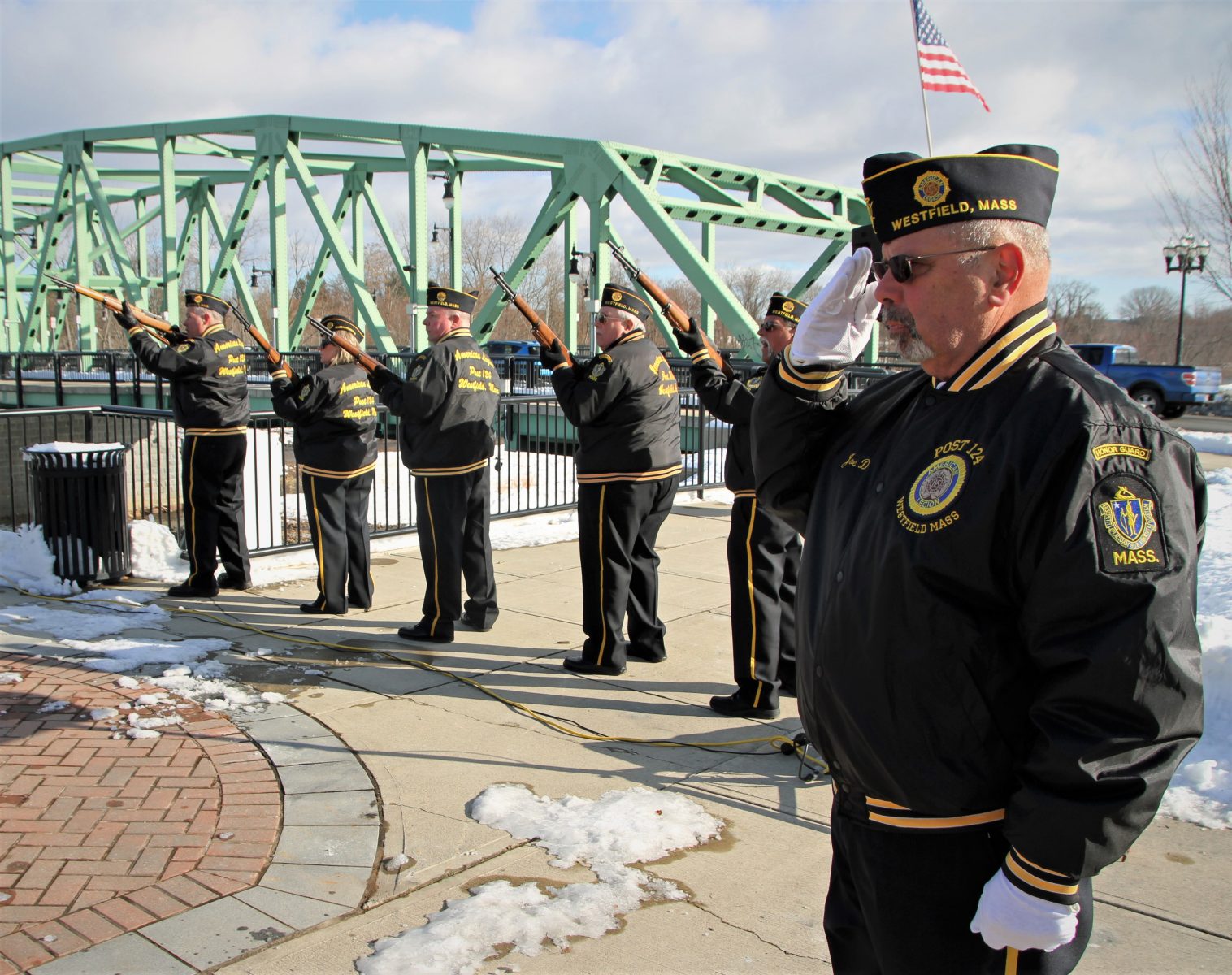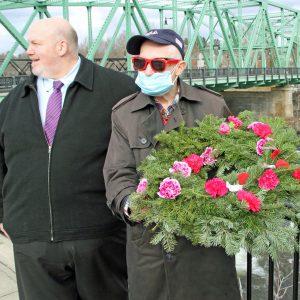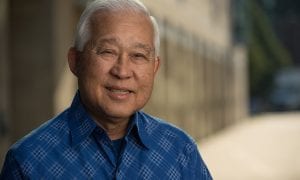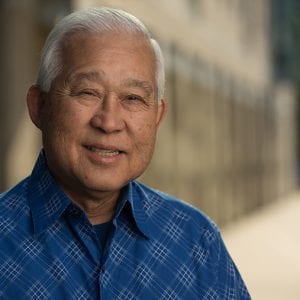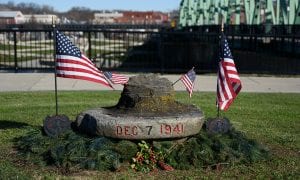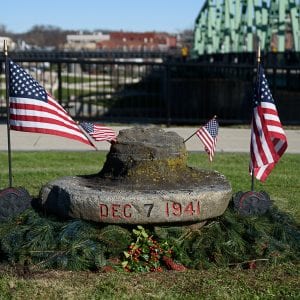
Joe Delaney, Officer of the Day, presents arms Dec. 7, 2019 as the rifle squad from American Legion Post 124 fire their rifles before taps. (Photo by Don Wielgus)
WESTFIELD- The anniversary of the Pearl Harbor attack was recognized Dec. 7 in a ceremony organized by American Legion Post 124 at the Kane-Wojkiewicz Park on Elm Street.
The ceremony marked the 78th anniversary of the tragedy.
City and state officials, residents, members of Post 124, and some veterans braved the bitter cold at the small park by the bridges on Elm Street to remember the events that forced the United State’s involvement in World War II. It was the deadliest attack on U.S. soil until the September 11th attacks in 2001.
“We will never forget the 2,403 people and service members who lost their lives that day and the additional 1,178 that were wounded in the Japanese sneak attack on Pearl Harbor on Sunday, December 7th, 1941,” said Cindy LaCoste, Past Commander of Post 124.
In particular, the ceremony recognized the sacrifice of Westfield resident Frank Wojkiewicz, who was killed during the “Day of Infamy” onboard the USS Arizona, which was sunk that day when a Japanese bomb fell into and detonated a powder magazine, causing the ship to be quickly torn in half.
Wojkiewicz was one of 1,172 crewmen on the Arizona who were killed. The ship remains at the seabed of the harbor to this day.
Wojkiewicz was the first resident of Westfield to be killed in action during the second world war.
Representing the Wojkiewicz family during the ceremony was his surviving first cousin Stephen Wichrowski. Wichrowski was given the honor of casting a memorial wreath into the waters of the Westfield River below. Before his passing two years ago, local Pearl Harbor Veteran Robert Greenleaf had been the one to throw the wreath during the annual ceremony.
State Rep. and U.S. Army Major John C. Velis gave remarks during the ceremony, emphasizing that people should still remember Pearl Harbor as they remember 9/11.
“People, for whatever reason, are no longer remembering this day. He [Robert Greenleaf] talked about how he was at a high school track one day and he asked a student about Pearl Harbor,” said Velis, “The young woman responded: ‘Who is that? I don’t know her’.”
Velis closed by echoing Greenleaf’s words: “Study history.”
The Pearl Harbor attacks quickly prompted the U.S. to declare war against the Japanese, kicking off the Pacific Theater of World War Two. The U.S. would not get involved in the European Theater against the Nazis until July of 1943 with the invasion of Sicily. American troops were involved in the North African campaign to a lesser extent in 1942-1943. The U.S. would later invade Nazi-occupied France on D-Day on June 6th, 1944.

